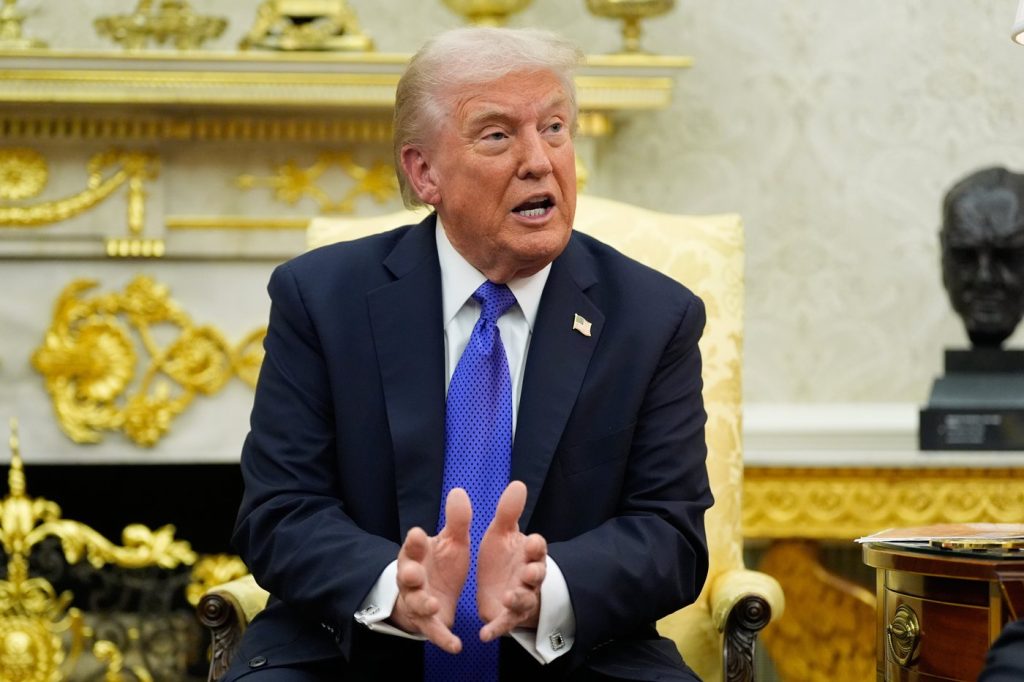MONTREAL – The Canadian business community appears to be increasingly desensitized to the dramatic trade tensions with the United States, particularly in light of U.S. President Donald Trump’s latest outburst. On Thursday, Trump announced that he was halting trade talks with Canada due to an advertising campaign initiated by the Ontario government aimed at opposing tariffs. The ads featured clips of former U.S. President Ronald Reagan warning about the dangers of protectionism, which Trump accused of attempting to “illegally influence” the U.S. Supreme Court as it prepares to hear cases related to his tariffs.
In response to the controversy, Ontario Premier Doug Ford stated that the ad campaign would be paused, but only after it had aired during the first two games of the World Series, thereby maximizing its reach to a significant American audience. Preetika Joshi, an assistant professor at McGill University’s Desautels Faculty of Management, remarked on the situation, highlighting its tragicomic nature and noting the serious implications for international relations.
Despite Trump’s incendiary comments, corporate Canada reacted with relative calm. On the day following Trump’s announcement, Canada’s main stock index actually rose by half a percentage point, indicating a level of resilience amid political turmoil. The Canadian Chamber of Commerce called for steadiness, with CEO Candace Laing urging businesses to focus on the “long game.” Recent market trends suggest that traders and investors have largely ignored trade tensions, as Canadian and U.S. benchmark indexes have reached record highs since a sharp decline in April.
However, this apparent desensitization does not negate the underlying anxiety among businesses. According to the Bank of Canada’s quarterly business outlook survey, despite improved sentiment, firms' forecasts continue to remain subdued. Joshi emphasized the uncertainty in the environment, which is causing businesses to delay significant investments. She pointed out that many industries, particularly manufacturing sectors such as automotive and steel, rely on long-term planning, making it challenging to set clear targets amid fluctuating tariff policies.
The abrupt nature of Trump’s suspension of trade talks is not unprecedented; he previously halted negotiations in June over a proposed three percent levy on technology firms like Google and Amazon. This unpredictability has led many Canadian businesses to view Trump’s declarations with skepticism, understanding that his statements are often laden with theatrics and serve as negotiation tactics. Mahmood Nanji, a policy fellow at Western University’s Ivey Business School, noted that such reactions from Trump should not catch Canadians off guard, as they are typical of his approach to gaining leverage in negotiations.
Nevertheless, specific sectors and regions affected by high tariffs on automobiles, steel, aluminum, and lumber remain particularly sensitive to developments in U.S.-Canada trade discussions. The ongoing shifts in U.S. trade policy, which began with Trump’s executive order imposing broad import taxes, have created a convoluted landscape. Initial threats of tariffs have morphed into exemptions under the Canada-U.S.-Mexico Agreement, a pivotal trade deal signed during Trump’s first term. Yet, significant tariffs continue to impact various industries, risking the foundations of long-standing free trade between the U.S. and Canada.
As the trade situation remains precarious, experts like Nanji warn that Canadians should prepare for a challenging phase ahead. He predicts that the months to come will be difficult and turbulent, particularly concerning relations with the U.S. This once stable trade partnership may now face significant repercussions, affecting a broad spectrum of Canadian businesses and consumers.











